Are you ready to make your wanderlust dreams come true? Imagine exploring exotic destinations, diving into diverse cultures, and making memories that last a lifetime.
For many, globe-trotting experiences are a dream. But starting can be tough. From planning to budgeting and navigating new places, it’s a big journey.
Key Takeaways
- Plan your trip with a clear budget and itinerary
- Research your destinations to understand local cultures
- Pack smart to navigate diverse climates and terrains
- Stay safe while exploring foreign lands
- Immerse yourself in local experiences for a richer journey
The Transformative Power of Global Exploration
When you explore new places, you’re not just seeing the world. You’re also discovering yourself. Traveling to new spots and diving into different cultures can change you deeply.
Personal Growth and Self-Discovery
Traveling makes you question your beliefs and step out of your comfort zone. It helps you grow and learn about yourself. As you face new challenges, you become more resilient and adaptable.
Cultural Understanding and Global Perspective
Travel lets you see cultures up close, broadening your view of the world. By connecting with local people, you learn to appreciate the unique aspects of cultures. This helps you see the world from a global perspective.
Breaking Out of Comfort Zones
Exploring the unknown can be scary, but it’s also very rewarding. By facing uncertainty, you open yourself to new experiences and growth.
| Aspect | Pre-Travel | Post-Travel |
|---|---|---|
| Personal Growth | Limited self-awareness | Increased confidence |
| Cultural Understanding | Narrow perspective | Broadened global perspective |
Setting Your Travel Goals and Intentions
A well-planned trip starts with clear goals and knowing your travel style. This step makes your planning focused and effective.
Defining Your Travel Style
Your travel style shows who you are and what you like. It might be about seeking adventures or enjoying local cultures.
Adventure Seeker vs. Cultural Explorer
Do you love activities that get your heart racing, like skydiving? Or do you prefer to dive into local cultures and history?
Luxury Travel vs. Budget Backpacking
Your budget shapes your travel style too. Do you want luxury or budget-friendly travel to see more places?
Creating a Realistic Travel Bucket List
After knowing your style, make a bucket list. Pick places and experiences that fit your goals and budget.
| Travel Style | Characteristics | Popular Destinations |
|---|---|---|
| Adventure Seeker | Thrill-seeking activities, outdoor adventures | New Zealand, Costa Rica, Iceland |
| Cultural Explorer | Historical sites, local cuisine, cultural immersion | Italy, Japan, Morocco |
| Luxury Traveler | High-end accommodations, fine dining | Maldives, Dubai, France |
| Budget Backpacker | Affordable accommodations, local experiences | Thailand, Vietnam, Peru |
Knowing your style and making a realistic bucket list helps. You’ll reach your travel goals with what you have.
How to Travel the World on Any Budget
Traveling the world doesn’t need to cost a lot. Smart planning and budgeting can make it affordable for everyone. You can see the world without spending too much.
Destination Cost Analysis for American Travelers
Knowing the cost of living in different places is key for budget travel. For Americans, places like Southeast Asia and South America are cheap. But, Western Europe and Japan are pricier. Look up daily costs to plan a cheaper trip.
Creating a Travel Savings Plan
To travel on a budget, saving for trips is a must. Here are some tips:
Monthly Saving Strategies
Save a set amount each month for travel. Use a separate account for travel costs. It makes saving easier.
Travel Reward Programs and Credit Cards
Travel rewards and credit cards can save you money. Find cards that match your travel style. They can cut down on expenses.
Budget-Stretching Tips for International Travel
To stretch your budget, stay in hostels and cook your meals. Use public transport and find free attractions. With planning, you can have a great trip without spending too much.
Crafting the Perfect Itinerary
Making the perfect itinerary is like creating a work of art. It’s about finding the right mix of famous spots and hidden treasures. Knowing what you want to see, like culture, nature, or food, helps make your trip unforgettable.

Balancing Must-See Attractions with Hidden Gems
When planning your trip, mix famous sights with secret spots. This way, your globe-trotting experiences will be both enriching and fun. For example, in Paris, see the Eiffel Tower and also explore Montmartre’s charming streets.
Multi-Country Trip Planning
Planning a trip to multiple countries needs careful thought. Think about how far places are and how long it takes to get there. Using big transportation hubs and planning your route well can make your trip smoother and more enjoyable.
Seasonal Considerations for Different Regions
Seasons can change your travel experience a lot. Visiting Southeast Asia in the dry season or Europe in spring can make your trip better. Knowing the best times to visit can help you plan your wanderlust inspiration trips better.
Essential Documentation for American Travelers
Traveling abroad needs careful planning, starting with the right documents. Having the correct paperwork can make your trip smooth or stressful.
Passport Requirements and Renewal Tips
A valid passport is key for international travel. Americans need a passport that won’t expire six months before leaving their destination. Renewing a passport takes weeks, so apply early. First-time applicants or those renewing in person must submit Form DS-11. Those renewing by mail use Form DS-82.
Navigating Visa Applications for Different Countries
Visa rules change from country to country. Some allow visa-free travel or visa on arrival for Americans. Others need advance applications. It’s vital to check visa needs for your destinations. Use official government sites or talk to the embassy or consulate of your destinations for the latest info.
International Driving Permits and Global Entry
An International Driving Permit (IDP) is useful for driving abroad. It translates your driver’s license into many languages. It helps with car rentals and local authorities. Also, Global Entry speeds up customs when returning to the U.S.
Comprehensive Travel Insurance Selection
Travel insurance is a must for international trips. It covers unexpected medical costs, trip cancellations, or lost luggage. Choose a policy based on your activities and coverage needs. Compare different insurance providers to find the best for your trip.
| Document | Purpose | Where to Obtain |
|---|---|---|
| Passport | Primary identification for international travel | U.S. Department of State |
| Visa | Permission to enter certain countries | Embassy or Consulate of destination country |
| International Driving Permit (IDP) | Translation of driver’s license for international driving | American Automobile Association (AAA) |
| Global Entry | Expedited customs processing upon return to the U.S. | U.S. Customs and Border Protection |
| Travel Insurance | Coverage for medical, trip, and luggage issues | Various insurance providers |
Packing Strategies for World Travelers
To make the most of your global travels, it’s essential to master the art of efficient packing. Whether you’re heading to multiple climates or venturing into the unknown, being prepared is key.
Versatile Wardrobe Planning for Multiple Climates
Creating a versatile wardrobe is key for travelers visiting diverse climates. Layering is a practical approach, allowing you to adjust to different temperatures. Consider packing:
- Moisture-wicking base layers
- Insulating mid-layers
- Waterproof outer layers
Choose items that can be mixed and matched to create multiple outfits, reducing the need for excessive luggage.
Essential Travel Gear and Accessories
Beyond clothing, there are several essential travel gear items to consider:
- A sturdy, comfortable backpack or luggage
- Travel adapters and converters
- Portable chargers and power banks
- Noise-canceling headphones
Electronics and Adapters for International Use
Navigating electronics for travel can be challenging due to varying international standards.
Voltage Differences and Charging Solutions
Different countries have different voltage requirements and outlet types. Research your destinations to understand their specific needs. A universal travel adapter can be a lifesaver.
Communication Devices and SIM Cards
Staying connected is vital. Consider purchasing a global SIM card or portable Wi-Fi hotspot. Many smartphones also offer eSIM capabilities, allowing for easier switching between networks.
By focusing on these key areas, you can ensure a smoother, more enjoyable travel experience. Efficient packing is not just about what you bring, but how you prepare for the journey ahead.
Mastering Global Transportation
Traveling around the world is exciting. To make the most of your trips, knowing how to get around is key. It makes your journey smooth and fun.
Finding Flight Deals from U.S. Hubs
First, find cheap flights from big U.S. airports. Use websites to compare prices and get alerts for deals. Flying into smaller airports or during off-peak times can save you money.
Navigating Foreign Public Transportation Systems
Traveling in foreign cities can be tough but rewarding. Learn about local trains, buses, and metro lines. Many cities have passes for tourists that offer unlimited travel and discounts.
Car Rentals and Road Trips Abroad
Car rentals and road trips offer freedom to explore. Check local driving laws and insurance needs. Renting a car lets you see scenic routes and hidden spots.
Alternative Transportation Options
Try bike rentals, walking tours, and ride-sharing for a unique experience. These options let you dive into local cultures and views.
Mastering global travel means planning well. It lets you enjoy your trip fully, focusing on the best parts.
Immersive Cultural Experiences
To truly travel, one must dive into the cultural fabric of the destination. Immersive cultural experiences enrich the traveler’s journey and help local communities.
Overcoming Language Barriers
Language can be a big barrier to cultural immersion. Learning key phrases in the local language helps a lot. Technology like translation apps also makes communication easier.
Connecting with Locals Authentically
Connecting with locals is more than just talking. It’s about building real relationships. Joining community events or staying in local places helps make these connections.
Participating in Cultural Traditions and Festivals
Cultural traditions and festivals show a community’s heart. Participating in these events gives unforgettable experiences and insights into local customs.
Ethical Tourism Practices
Ethical tourism ensures travel benefits both the traveler and locals. It means respecting local customs, supporting local businesses, and caring for the environment.
| Practice | Description | Benefit |
|---|---|---|
| Supporting Local Businesses | Choosing locally-owned accommodations and restaurants | Boosts local economy |
| Respecting Local Customs | Dressing appropriately and following local norms | Fosters positive interactions |
| Minimizing Environmental Impact | Reducing plastic use and conserving resources | Preserves natural beauty |

Health and Safety Abroad
When planning your international trip, health and safety come first. Traveling abroad means facing new places, cultures, and health risks. Being ready is essential for a safe and fun trip.
Pre-Travel Medical Preparations
Before you leave, take care of your health. Talk to your doctor or a travel clinic. They’ll tell you what vaccinations and medications you need for your trip.
Vaccinations and Medications
Health needs vary by country. Some need yellow fever vaccination proof. Also, pack your prescription meds in your carry-on with a copy of your prescription.
International Health Insurance
Get international health insurance for peace of mind. It protects you financially in medical emergencies abroad. Look for insurance that covers you worldwide, including evacuation.
Safety Precautions in Different Regions
Safety changes with each region. Know the local situation, follow local customs, and don’t travel alone at night. “Awareness is your best defense against dangers,” say travel safety experts.
Handling Emergencies Far from Home
Have a plan for emergencies. Keep emergency contacts handy, like your embassy or consulate. Also, know how to reach local emergency services.
U.S. Embassy Resources and Registration
Register with the U.S. Embassy or Consulate through STEP. It gives you safety updates and helps you reach family in emergencies.
By following these steps, you can greatly improve your health and safety abroad. This makes your trip more enjoyable and worry-free.
Documenting Your Global Adventures
Recording your travels can be very rewarding. It lets you reflect on your experiences and share them with others. As you explore the world, capturing your adventures through different mediums keeps memories alive and lets you relive them.
Travel Photography Techniques
Great travel photos need both technical skills and creativity. To improve your travel photography, try these techniques:
- Focus on lighting: Early morning and late afternoon light can add depth and warmth to your photos.
- Play with composition: Use leading lines, framing, and symmetry to create visually appealing images.
- Connect with your subjects: When photographing people, take the time to interact and build rapport to capture authentic moments.
Journaling and Blogging Your Experiences
Writing about your travels can be therapeutic. Journaling and blogging let you reflect, share tips, and keep memories alive.
To start journaling or blogging, follow these tips:
- Stay consistent: Regularly update your journal or blog to keep momentum and engage your audience.
- Be real: Share your true experiences, including both the best and toughest parts of your travels.
- Use descriptive language: Make your stories come alive with vivid descriptions and sensory details.
Creating Meaningful Souvenirs
Collecting souvenirs is a classic travel tradition. To make your souvenirs special, choose items that show the local culture and your personal journey.
| Souvenir Type | Description | Example |
|---|---|---|
| Local Handicrafts | Unique, handmade items that reflect the local culture. | Hand-woven textiles from Peru. |
| Personalized Items | Custom-made souvenirs that incorporate personal elements. | A customized map with the places you’ve visited. |
| Culinary Delights | Local foods and spices that can be enjoyed long after the trip. | Artisanal cheeses from Italy. |
Sharing Stories Responsibly
When sharing your travel stories, do it responsibly. Be aware of cultural sensitivities, respect local customs, and avoid sharing information that could harm the communities you’ve visited.
By sharing your stories thoughtfully, you can promote understanding and inspire others to travel responsibly.
Conclusion: Bringing the World Home with You
When you return home after traveling, you might feel a little sad. But remember, your journey has changed you. It has given you a new view of the world and a desire to explore more.
Keep your travel memories alive by sharing your stories and showing off your souvenirs. Displaying your mementos can remind you of the amazing times you had. You can also make a photo album or write about your adventures.
Traveling teaches you valuable lessons and introduces you to different cultures. These experiences will shape who you are and guide your future. Even when you’re back to your daily routine, the lessons and inspiration from your travels will continue to enrich your life.
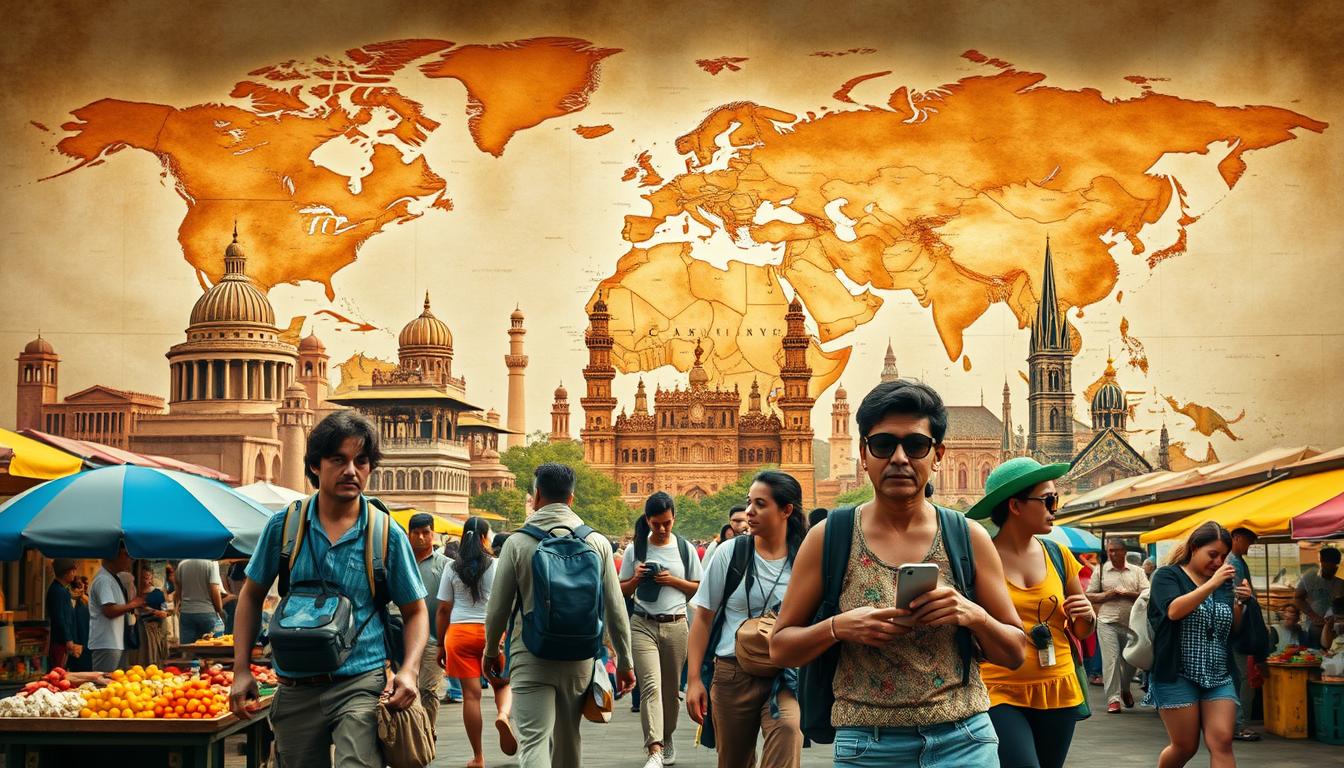



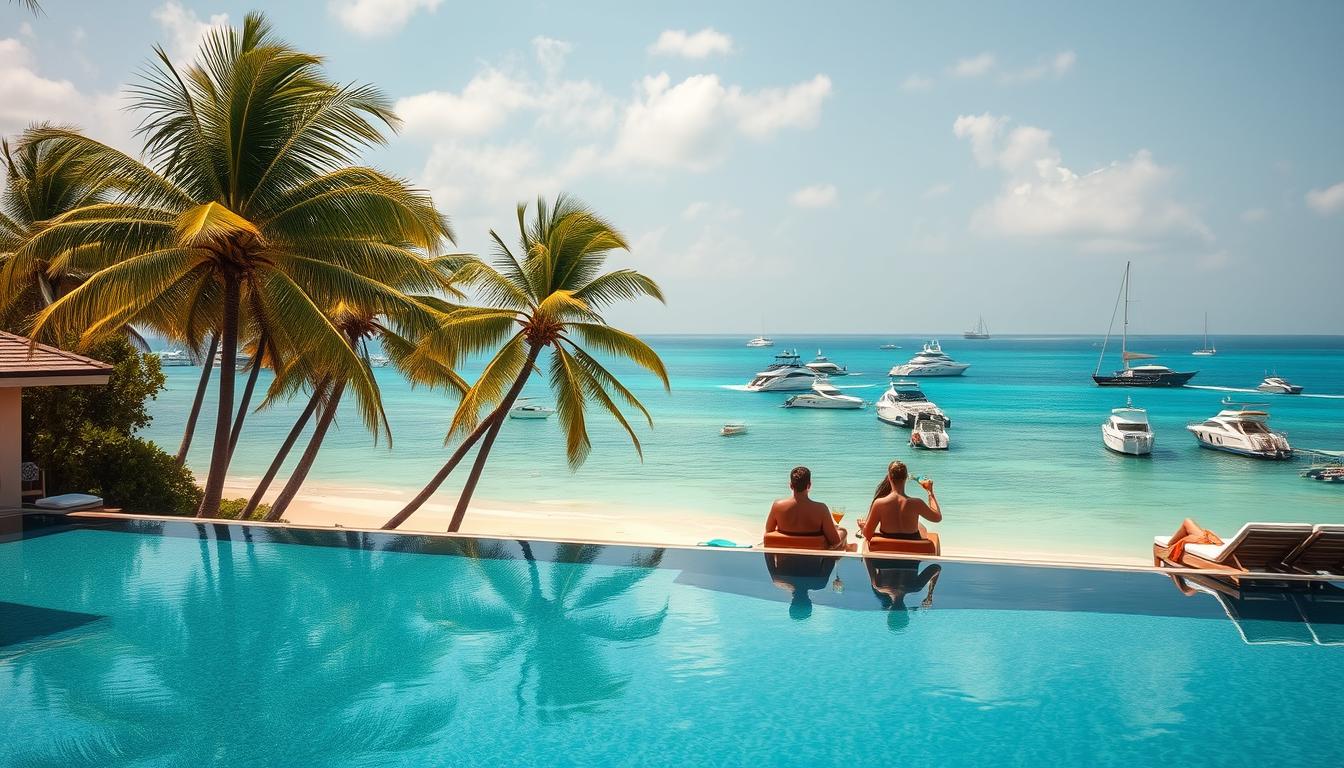
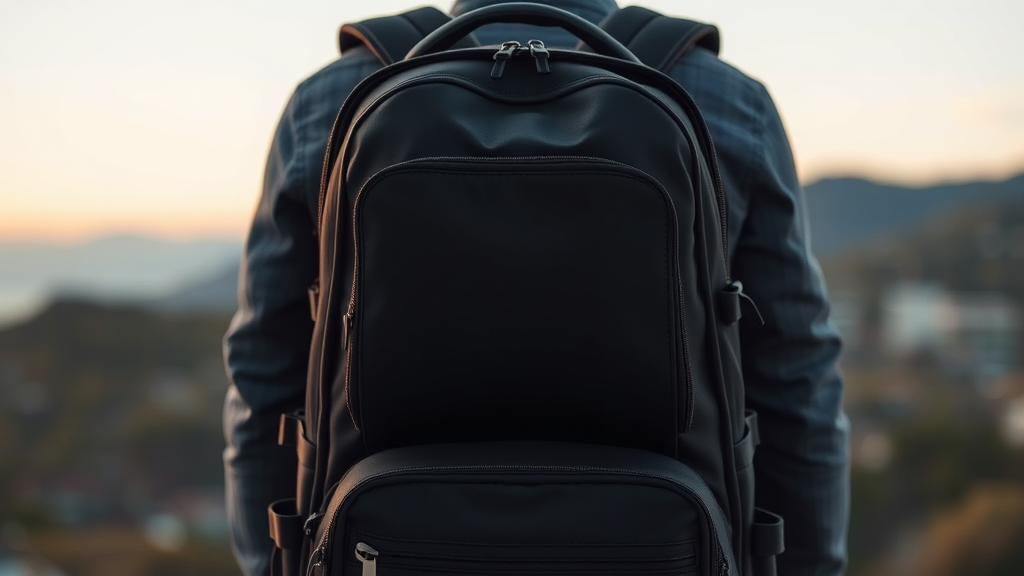

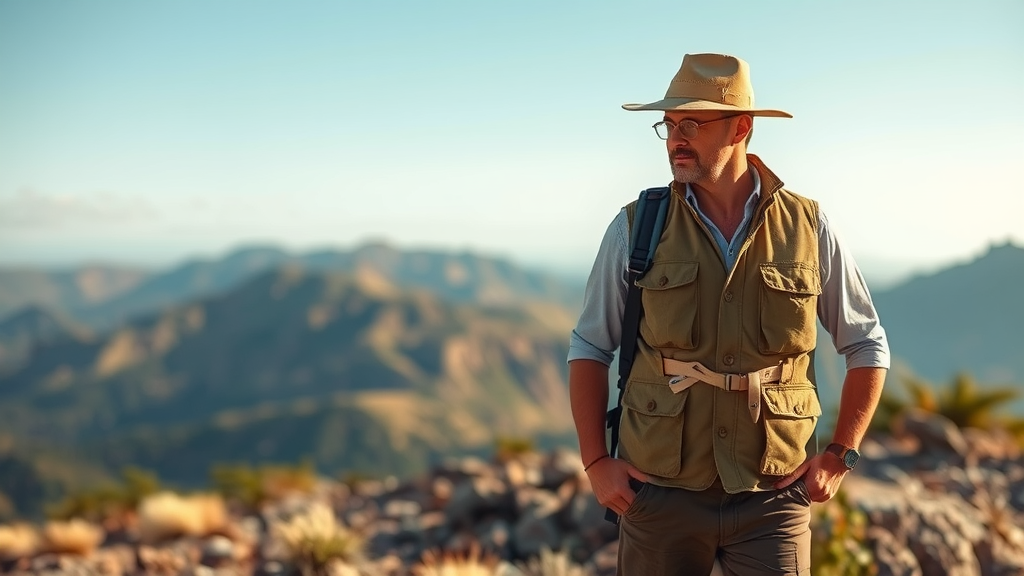

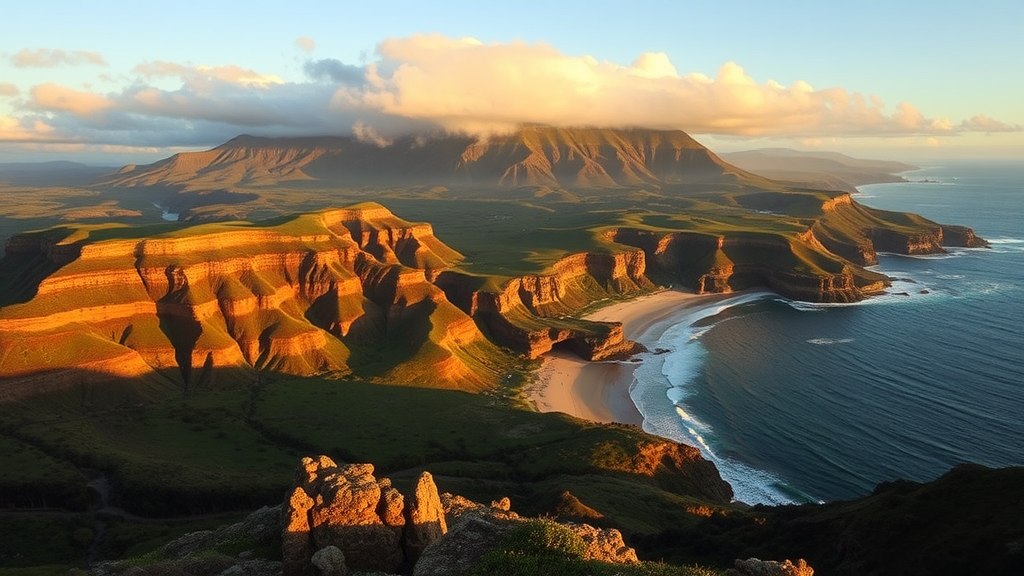



Leave a Reply